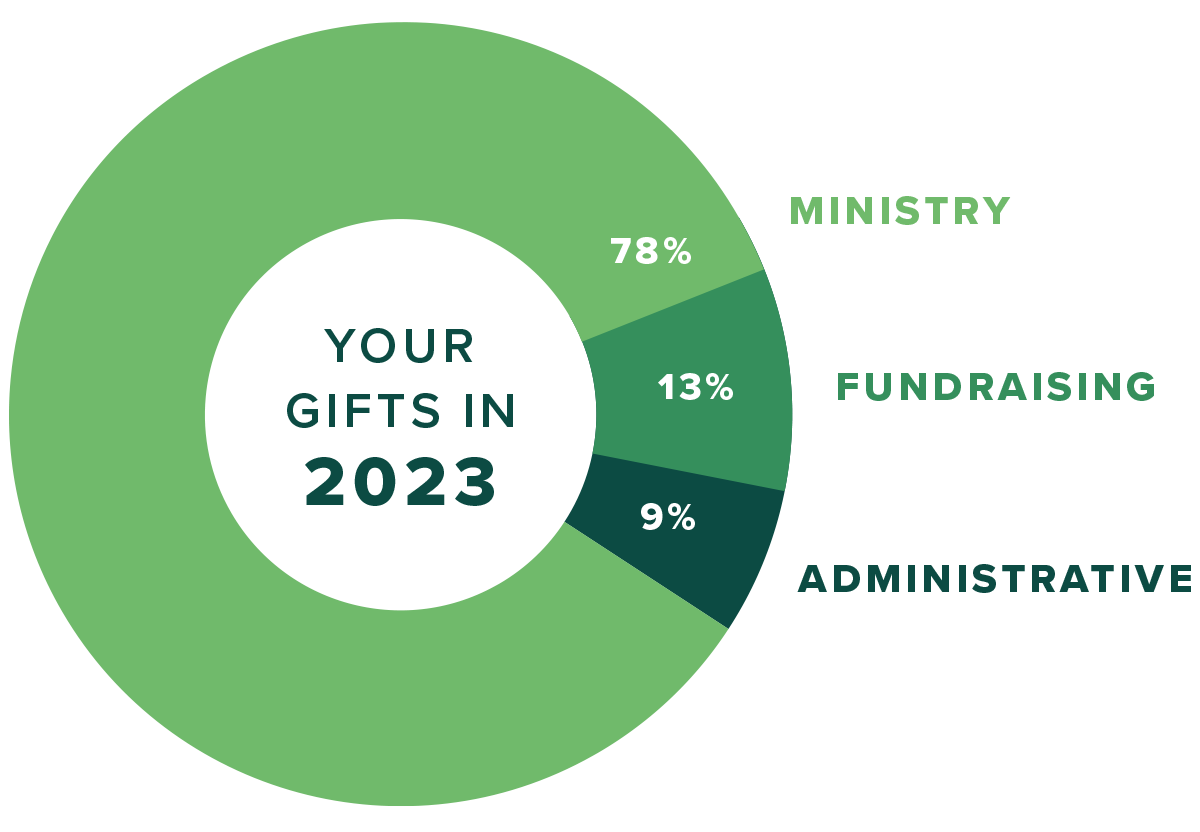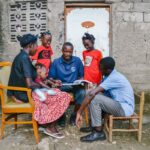Prady and her daughter Alison, a sponsored child in Honduras, show us how to make a popular and delicious holiday dish.
What’s not to love about nacatamales?
Have you ever tried one of these tasty bundles of goodness? If not, you’re missing out on a wonderful, traditional holiday food made in Honduras and other Central American countries.
Nacatamales are flavorful, steamed corncakes stuffed with meat, veggies, and spices and served during special occasions, like Christmas. They’re similar to tamales, only they’re bigger and filled with more ingredients than tamales.
Here Prady and her daughter Alison, a sponsored child in Honduras, show us how they make delicious nacatamales for Christmas!
A recipe for nacatamales follows the video so you can make them too! This recipe, from the website whats4eats which features international recipes, varies a bit from Prady and Alison’s recipe, particularly in the assembly portion. Also, feel free to add other ingredients — such as garlic, chili powder, and oregano — to spice up the flavor to your liking.
Nacatamales
Ingredients
Masa (Dough)
- 6 cups masa harina
- 1 cup lard or shortening
- 1 tablespoon salt
- 1/2 cup sour orange juice
- 4-5 cups chicken broth
Nacatamale Filling
- 3 pounds pork butt, cubed
- Salt and pepper to season
- 3/4 cup rice, soaked in warm water for 30 minutes
- 1/2 pound potatoes, peeled and sliced into 1/4-inch rounds
- 1 onion, sliced into 1/4-inch rounds
- 2 bell peppers, sliced into 1/4-inch rounds
- 2 tomatoes, sliced into 1/4-inch rounds
- 1 bunch mint or cilantro, chopped
For Assembly
- 12 pieces banana or plantain leaves, spine removed and cut into 10-by-10-inch rectangles
- 12 pieces aluminum foil cut into 10-by-10-inch rectangles
The Process
- Place the masa harina, lard, or shortening, and salt in the bowl of an electric mixer. Blend on a low speed to incorporate the fat into the masa harina and give it a mealy texture. You may have to do this and the next step in two batches if your mixer bowl is not large enough to hold all the ingredients without overflowing.
- With the mixer still on low speed, add the sour orange juice and enough chicken stock to make a soft, moist dough. It should be a little firmer than mashed potatoes. Increase the mixer speed to medium-high and beat for 2 to 3 minutes to incorporate some air into the masa and make it fluffier. Cover the bowl and set the masa aside to rest for at least 30 minutes.
- Season the pork with salt and pepper. Drain the rice. Assemble all of your filling ingredients and assembly items on a large table or work surface.
- Lay out a banana leaf square with the smooth side up. Place 1 cup of the masa in the middle of the banana leaf and, using wet hands, spread it out a little. Put about 1/2 cup of pork on top of the masa and sprinkle 1 or 2 tablespoons of rice over the pork. Lay 1 or 2 slices of potato on top of the pork and then top with 1 or 2 pieces of onion, 1 or 2 pieces of pepper, and a slice of tomato. Top it all off with a few mint or cilantro leaves.
- Fold the top edge of the banana leaf down over the filling. Bring the bottom edge of the banana leaf up over this. Then fold in both sides to make a rectangular package. Be careful not to wrap it too tightly or the filling will squeeze out. Flip the package over so it is seam-side down.
- Set the tamale in the middle of an aluminum foil square and wrap it up tightly the same way you wrapped up the banana leaf. Set aside and repeat with the remaining ingredients to make 10 to 12 nacatamales in total.
- Add 2 or 3 inches of water to a pot large enough to hold all the nacatamales. (You may have to use two pots if you don’t have one big enough to hold the nacatamales in one batch.) Place a rack in the bottom or toss in enough wadded up aluminum foil to hold the nacatamales mostly out of the water. Add the nacatamales and bring to a boil over high heat. Cover tightly, reduce heat to low and steam for 3 to 4 hours. Add more water as needed to keep the pot from boiling dry.
- Remove the nacatamales from the pot, take off their aluminum foil covering and serve hot.
We are accountable to the children we serve AND to our donors.
Our accountability to our donors is one of our highest priorities. Our goal is to use the funds entrusted to us as wise stewards. To do this requires continued monitoring of our fund distribution. OneChild is also a member in good standing with the Evangelical Council for Financial Accountability (ECFA)







